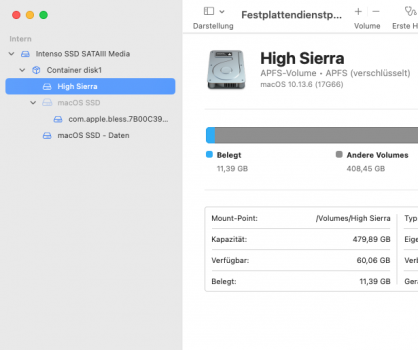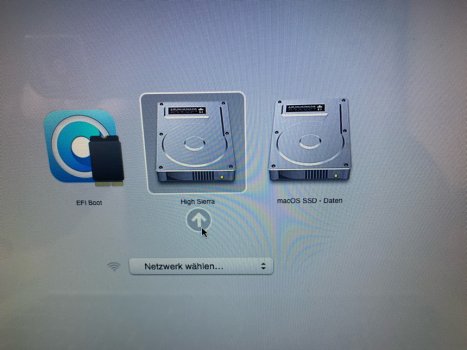A good question and some trickiness involved mainly due to APFS differences in macOS 12 vs 10.15.If I installed Catalina on a separated volume of my SSD as second OS (OCLP'd Monterey is on another volume of the same SSD) won't it affect in any way my existing Monterey installation and OpenCore status?
My thoughts, not 100% sure, could be wrong.
Single internal SSD, OCLP EFI installed on that SSD.
If you are thinking of two volumes sharing total space of SSD, I suspect it will not work. Catalina can't "see" newer Monterey created APFS volumes (newer APFS format).
I suspect you would have to:
- boot into Monterey recovery or USB installer
- use disk utility, shrink Monterey volume/container to free up some space, let's say 50GB
- reset NVRAM (like disabling OCLP EFI)
- boot into Catalina installer
- use disk utility, create new partition for Catalina (older APFS format that Catalina uses)
- install Catalina onto that new partition
In short, you need a separate disk partition instead of second volume (sharing total space).
To get back booting OCLP Monterey, just option boot, select OCLP EFI boot, CTRL select Monterey disk.




